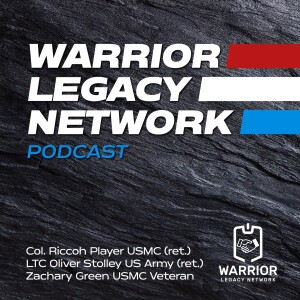

Summary
This conversation explores the themes of mentorship, the transition from military to civilian life, and the importance of community support for veterans. Zachary Green and Lieutenant Colonel Oliver Stolle discuss the cyclical nature of mentorship, the challenges faced during military transition programs, and innovative solutions to improve the reintegration process for veterans. They emphasize the need for a supportive network and the role of giving back to the community as a way to honor the service of veterans.
Takeaways
Summary
This conversation explores the themes of mentorship, the transition from military to civilian life, and the importance of community support for veterans. Zachary Green and Lieutenant Colonel Oliver Stolle discuss the cyclical nature of mentorship, the challenges faced during military transition programs, and innovative solutions to improve the reintegration process for veterans. They emphasize the need for a supportive network and the role of giving back to the community as a way to honor the service of veterans.
Takeaways
- Mentorship is a cyclical process where every mentor has a mentor.
- Transitioning from military to civilian life requires a supportive network.
- The importance of giving back to the community is paramount.
- Mentorship can occur at all levels, not just from senior to junior.
- Innovative solutions like mentorship software can enhance the transition experience.
- Community support is crucial for the successful reintegration of veterans.
- The military transition process needs to be more outcome-based.
- Veterans should have access to a variety of resources during their transition.
- It’s essential to recognize the impact of family on a veteran's reintegration.
- Collaboration among veteran organizations can lead to better outcomes.
Sound Bites
- "Mentorship is cyclical."
- "We need to work together."
• • "It takes a village."
Comments (3)
More Episodes
All Episodes>>Create Your Podcast In Minutes
- Full-featured podcast site
- Unlimited storage and bandwidth
- Comprehensive podcast stats
- Distribute to Apple Podcasts, Spotify, and more
- Make money with your podcast
It is Free












